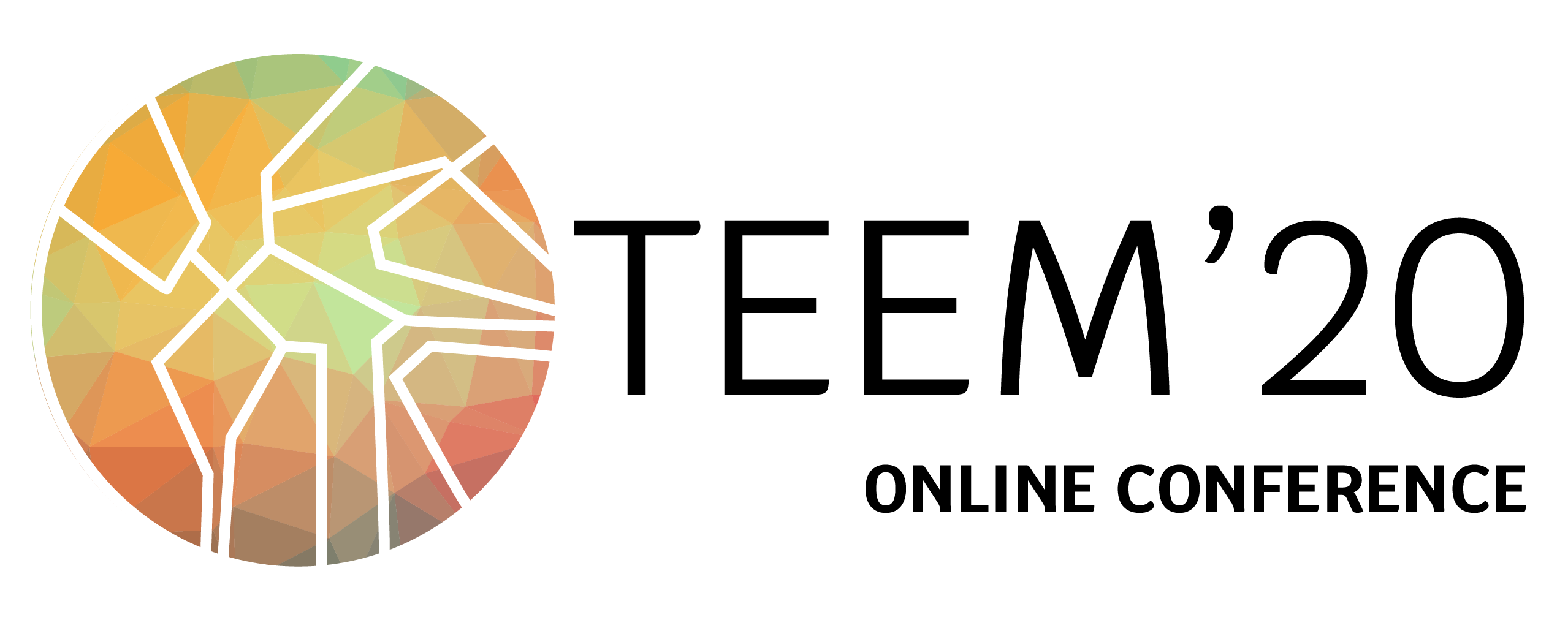Presentation
Nowadays the development of computational thinking skills is a real need for future generations of workers that should know, at least, the basic laws of a computer-based society and, without demerit to humanities or social sciences, trying to reduce the current gap with STEAM (Science, Technology, Engineering, Arts and Mathematics) careers.The information era, along with the technologisation process, makes it difficult to avoid the use of technological devices and the hyperconnectivity that they entail. This reality is transforming our ways of thinking and communicating making an impact on the scenarios where subjects carry out their own identity configuration and development. Digitality has given access to a new social space-time of coexistence, communication and culture, and as a consequence of the hyperconnected actions and interactions, this new era is changing the patterns of development and construction of personal identities as a consequence of hyperconnected actions and interactions. From a neutral position, we consider that technologies are neither intrinsically liberating nor completely trap or enslave us, but depend on our thoughts and uses. In this line, this track aims to study the processes of construction, destruction and re-construction of the digital self, the OnLife self and its externalization and public, and / or private manifestation, in a hypertechnological society, characterized by an apparent need to always be accompanied, to always be entertained, to be submissive and to tell everything. We are looking for proposals that make the ways in which people’s identity can be configured more visible, as the basis for socialization, enculturation, relationship, and education, analyzing the different variables that mediate these processes.Nowadays the development of computational thinking skills is a real need for future generations of workers that should know, at least, the basic laws of a computer-based society and, without demerit to humanities or social sciences, trying to reduce the current gap with STEAM (Science, Technology, Engineering, Arts and Mathematics) careers.
Topics
- New learning ecosystems
- Training processes in virtual environments
- Learning and virtual environments
- Blended Learning as digital learning methodology
- Identity construction in a hypertechnological world
- Digital identity and elderly
- Online vs. Offline learning processes
- Contexts, mechanisms of constructing human experience
Track Scientific Committee
Teresa Pessoa (Universidade de Coimbra, Portugal) – Chair
José Manuel Muñoz-Rodríguez (University of Salamanca, Spain) – Chair
Judith Martin Lucas (University of Salamanca, Spain) – Chair
Tania Alonso Sainz (Universidad Autónoma de Madrid, Spain)
Francisco Esteban Bara (Universidad de Barcelona, Spain)
Fernando Gil Cantero (Universidad Complutense de Madrid, Spain)
Juan García Gutiérrez (Universidad Nacional de Educación a distancia, Spain)
Natália Fernandes Gomes (Instituto Politécnico de Guarda, Portugal)
Luis Guilherme Augsburger (Universidade do Estado de Santa Catarina, Brazil)
María José Hernández Serrano (Universidad de Salamanca, Spain)
Mª María del Mar Lorenzo Moledo (Universidad de Santiago de Compostela, Spain)
Maria Jose Martins (Universidade de Portoalegre, Brazil)
Luciano Carlos Mendes de Freitas Filho (Universidade Federal do Rio de Janeiro, Brazil)
Cristina Mesuita (Instituto Politécnico de Bragança, Portugal)
María do Rosário Pinheiro (Universidade de Coimbra, Portugal)
Alberto Sánchez Rojo (Universidad Complutense de Madrid, Spain)
Sara Serrate González (Universidad de Salamanca, Spain)
Trevor Spratt (Trinity College Dublin, Ireland)
Bianca Thoilliez Ruano (Universidad Autónoma de Madrid, Spain)
Eduardo Vila Merino (Universidad de Málaga, Spain)
